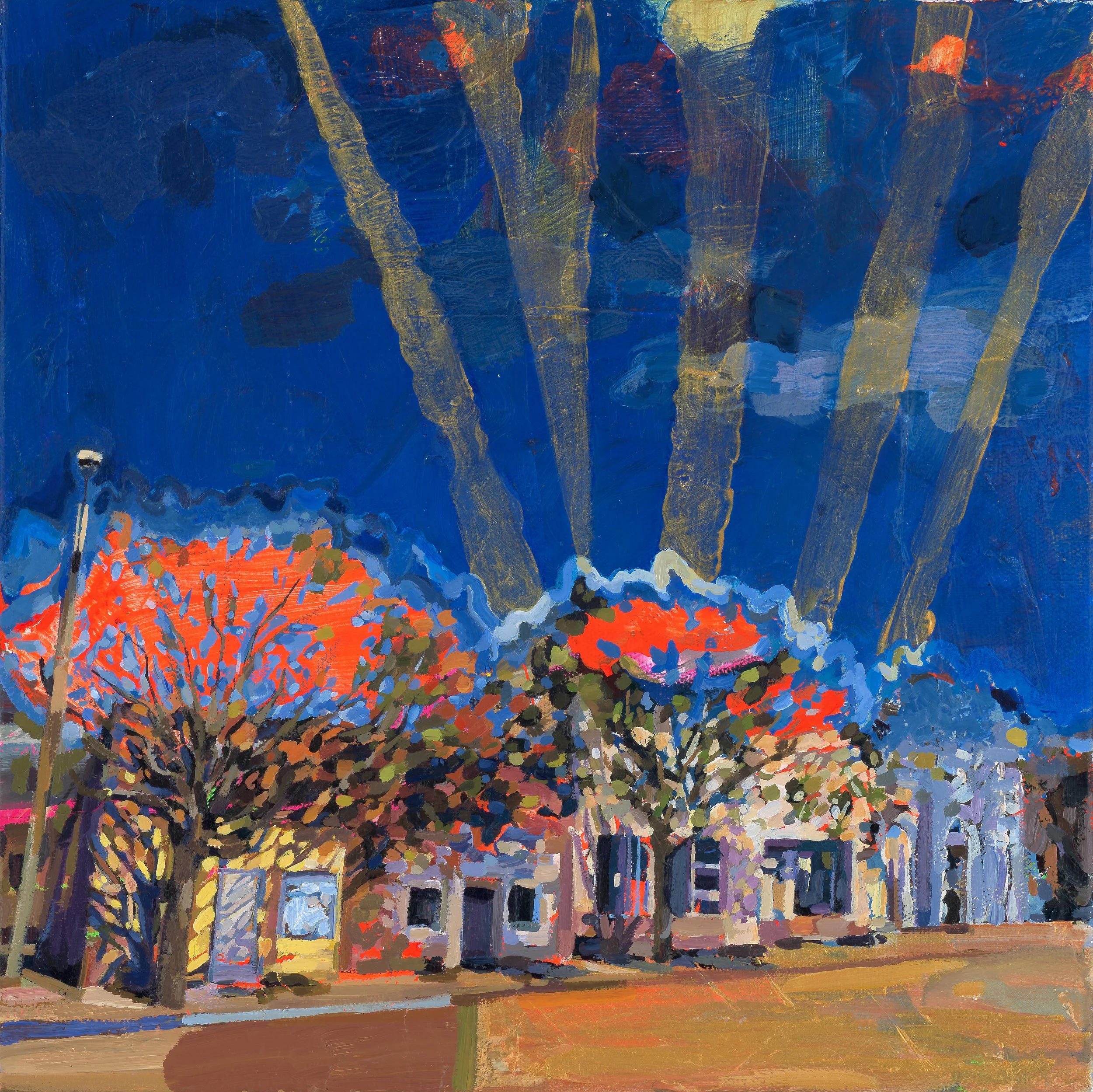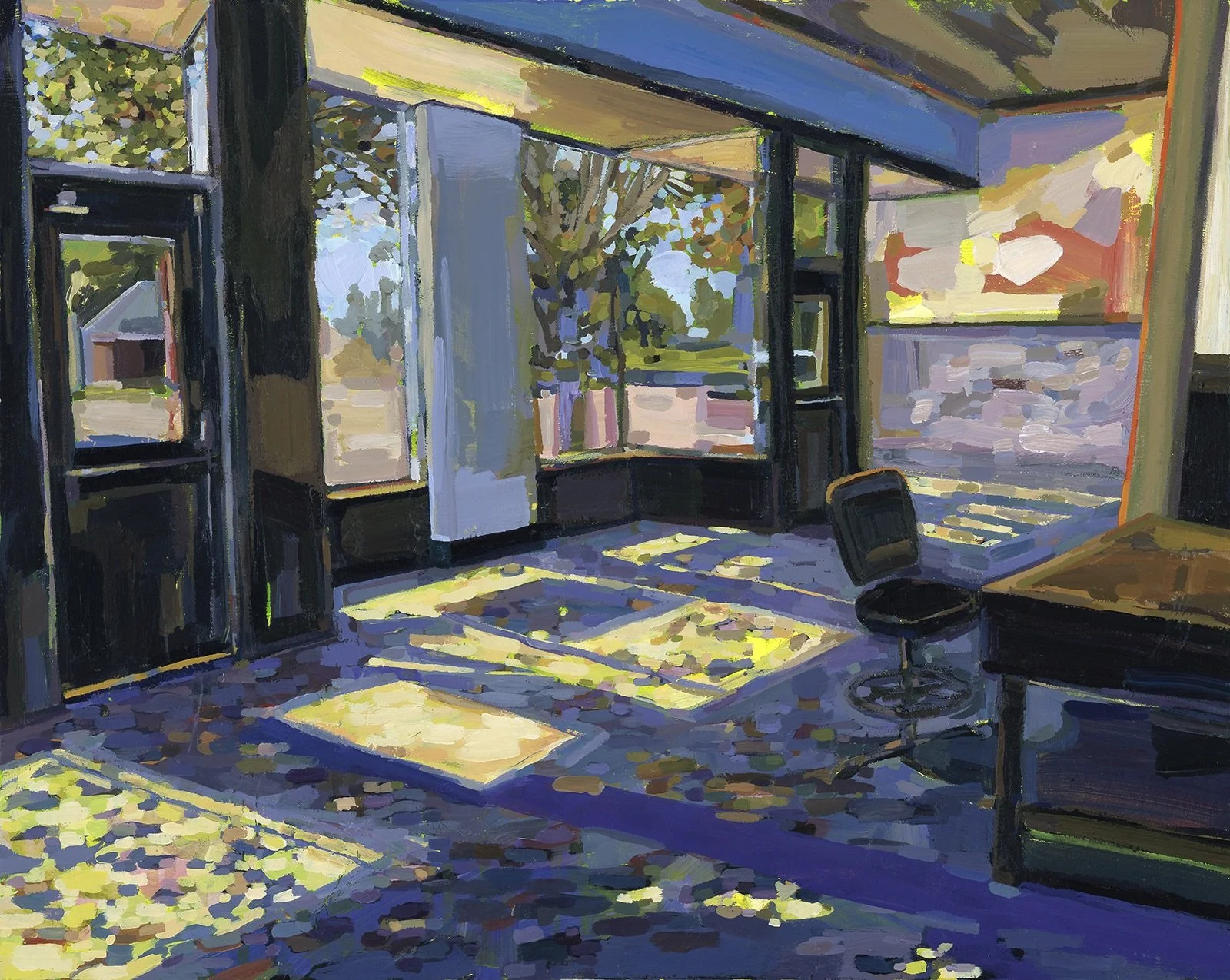
Sumner, Mississippi
Tallahatchie County includes the small towns of Sumner, Tutwiler, Charleston (Morgan Freeman’s home), and Webb (the birthplace of Mamie Till). Bisected by the Tallahatchie River (Choctaw for “rock river”), the county was originally inhabited by the Choctaw Nation before their forcible removal to the Oklahoma territory by the federal government in 1833. Charleston self-describes as the “Gateway to Delta,” aptly situated on the final bluffs of hill country just above the vast, flat expense of the Mississippi Delta National Heritage Area.

As of 2020, about 13,000 folks reside in Tallahatchie County, with a make-up of 58% Black American, 37% white American, 3.5% Latino, and the remaining 1.5% identifying as biracial, Native American, Asian American, or Pacific Islander.
But Tallahatchie County is probably best known as the site of 14-year-old Emmett Till’s murder trial in 1955. In late 2019, I interviewed Benjamin Saulsberry, the Public Engagement and Museum Education Director of the Emmett Till Interpretive Center, and this conversation, and the work of the Center, inspired a new series of paintings for The What’s Good Project.
I need to mention here that these works aren’t directly focused on the story of Emmett Till, and instead are more geared toward the work that the ETIC is doing locally, and by extension, nationally. If you’re unfamiliar with Emmett Till’s murder by J.W Milam and Roy Bryant, the white Tallahatchie County men who were never punished or held accountable, the ETIC is an incredible resource, online and in person, and I’d encourage you to look at the Emmett Till Memory Project, an app that moves through Emmett Till’s legacy site-by-site.

In 1994, Mr. Jerome G. Little (1952-2011), one of the Magnificent Seven, and Mr. Bobby Banks were the first Black Americans elected to the Tallahatchie County Board of Supervisors. (The Magnificent Seven was a group of seven Black men who, beginning in 1977, fought Tallahatchie County for fair political representation and for basic rights for the black community, including access to clean water, housing, and equal opportunities for employment and education.) In 2006, Mr. Little began the Emmett Till Memorial Commission to publicly acknowledge and apologize for Emmett Till’s murder and to begin a path of racial reconciliation in the community.
This path initially consisted of a series of community conversations between 18 Black and white county residents that were facilitated by the William Winter Institute of Racial Reconciliation. Mr. Saulsberry, the ETIC's Public Engagement and Museum Education Director, described these conversations as difficult, to say the least. Land-owning white residents sat with Black residents whose families had sharecropped their plantations for generations, and listened to the long-term impacts this racist and oppressive lifestyle had on their Black neighbors. Things would get heated and folks would leave, but they always came back.

How does this space make you feel?
"This place makes me feel-- I don't know if feel is the right word, but I'll tell you what it makes me do internally. It makes me look at where we've been, where we are, and where I would like us to go, and whether or not we're really going there. ...This space exists primarily because folks took time, be they unified in their thoughts and hopes and feelings, or if they all had different agendas altogether, but still chose to say, "Hey, this is what we're going to do as a cohort."
When I'm here, I can't help but think about Emmett Till, but then I also can't help but think about Mamie Till, Mose Wright, and the late Simeon Wright. And Wheeler Parker, and how their story, their tragedy, and them being a family being impacted by racism, is one that's not alien to people whose stories have not been heard or shared. It speaks to the fact that there's so much that has happened to so many people, that it's unfair for us to ignore that reality.
And I think in a way, this space tries not to ignore that reality, which is good. Now, having said that, this space also brings me to a point where it makes me question, what is the absolute right thing to do? Because I'm a person of faith, and I do believe as sure there's an up, there's a down, there's a left, there's a right, and yet we live in a circular world where basically, if you go so far, you're bound to end up right. You know what I mean?
And depending on the direction you're going, in my opinion, if you don't have a mapped out destination stopping point, you can use the excuse of moving. I mean, you can be confused with the notion that moving equates to moving forward or moving towards the right road."

“And so in past few years, we've been able to host summer programs or summer fellowship programs where the youth they use photo-documentaries as their medium for storytelling while also learning a little bit more about the civil rights movement. More specifically, the fact that the Civil Rights Movement wasn't just Martin King, Rosa Parks, and some of the folks that made the books or the history books, that the Civil Rights Movement was about quote-unquote, "regular folk," black and white that worked together and fought this system or at least tried to fight against the system and didn't get anything for it, other than, at least, the future impact being made as it relates to change for folks getting the right to vote and things being at least a little bit better than they were.
So we uplift that because it's important for all people to know that you being the only one very rarely means that no one else cares. And so if you care, do your best to find other folks that care, and you all work together, and you all do the best you can to cultivate change in your community. And if you're consistent, you stand a chance of actually making a lasting difference wherever you are, no matter how bad it's been. And so that is where we are at present. We're still trying to find ways to keep this thing going. We're also trying to find ways to-- we hope in the relatively near future to get National Park designation. We'll see.”

Have you seen things in the area change over your lifetime at all?
Well, in some ways, yes, and then in some ways, not so much. Or rather, I think they're yet changing. For example, and this isn't me trying to put a plug in for the place or the town but growing up, this town square, in particular, and this town in particular, were pretty much recognized as an all-white town and all-white square. You fast forward and now you have businesses owned and operated by African-American women...And I think a part of that has to do with the fact that this town and community-- or rather this county and community began a process of racial reconciliation officially in 2007....
The Emmett Till Memorial Commission came about, and they've been trying to cultivate racial harmony here. In some ways, I think it's safe to say if had the Commission not happened, it's questionable as to whether or not this space would be here, and us having a space to have this conversation, and also having businesses owned and operated by folk of color.”
Read more of the conversation with Benjamin Saulsberry here.